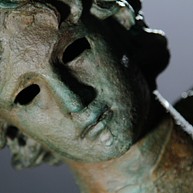
-
![Le Cap d'Agde, Natura 2000 marine site]() Provided by: Office de Tourisme du Cap d'Agde : R.DupuyDeLaGrandrive
Provided by: Office de Tourisme du Cap d'Agde : R.DupuyDeLaGrandrive -
![Natura 2000 marine site]() Provided by: Office de Tourisme du Cap d'Agde : R. Dupuy de la Grandrive
Provided by: Office de Tourisme du Cap d'Agde : R. Dupuy de la Grandrive

Our travel guides are free to read and explore online. If you want to get your own copy, the full travel guide for this destination is available to you offline* to bring along anywhere or print for your trip.
*this will be downloaded as a PDF.Price
€4,95
Natura 2000 marine site : "Posidonies du Cap d'Agde (Cap d'Agde Posidonia)"
The guide was updated:The preserved marine park "Les Posidonies du Cap d’Agde" covers 6,000 hectares of sea, boasts a very high level of biodiversity and extends up to 5 km out into the open sea and is sustainably coordinated, protected and managed with the help of all those actively involved in marine matters at local level (professional and amateur fishermen, divers, sailors, Cap d’Agde port authorities and archaeologists).
Digital Travel Guide Download
Our travel guides are free to read and explore online. If you want to get your own copy, the full travel guide for this destination is available to you offline* to bring along anywhere or print for your trip.
*this will be downloaded as a PDF.Price
€4,95

As the only underwater archaeological museum in France, it displays treasures once swallowed up by Adge's waterway: rivers, lakes and sea. All these objects, which include the most important collection of bronze statues found in situ bear witness to the town's past wealth and charm.
Read more

The protected sector of Pézenas
A jewel of architecture, with various facets of the Middle Ages (a mediaeval Jewish quarter), Renaissance, but above all, 17th-century architecture, including many residences nestled into the streets of bygone age. It’s a town inhabited by the ghosts of Molière, the Prince of Conti and many others, and currently home to craftsmen, artists and entertainers. Three theatres continue Molière’s tradition while also showing modern creations, with cultural festivals throughout the year.
Read more

The Cap d’Agde Golf course
Among pine woods, scrubland and links, you can enjoy exceptional golf with technical holes in situations of varied and rare beauty amid breath-taking views on the Mediterranean Sea!
The international 27-hole Cap d’Agde golf course was designed by Ronald FREAM (Alizés and Azur) and Alain Prat (Volcan) offers a choice of three 18-hole combinations:
• Classic Course: Azur & Alizés - Par 72, 6330 metres
• Champion Course: Volcan & Azur - Par 72, 6195 metres
• Challenge Course: Alizés & Volcan - Par 72, 6135 metres
Open all year round, the Cap d’Agde International Golf course also features: a 42 post driving range of which 16 are covered, 2 putting greens and 3 approach greens and private lessons and training by the LEADBETTER school.
Read more

The historical heart of La Cité d'Agde
It is one of the oldest towns in France, founded by the Greeks on the banks of the river at the foot of a former volcano. Its monuments: rampart, cathedral, Renaissance town houses, alleyways, stairways and entrance gates, are all made of basalt.
Guided visit with the official guide of the town
Read more

The Canal du Midi
Inscribed on the World Heritage List by UNESCO the canal can be discovered from the water at the slow pace of a floating barge or during a wonderful walk along its shady banks. You'll discover the only round lock, also made of basalt, with 3 different levels of water; a technical feat built in the 17th century.
Read more

Natura 2000 marine site : "Posidonies du Cap d'Agde (Cap d'Agde Posidonia)"
The preserved marine park "Les Posidonies du Cap d’Agde" covers 6,000 hectares of sea, boasts a very high level of biodiversity and extends up to 5 km out into the open sea and is sustainably coordinated, protected and managed with the help of all those actively involved in marine matters at local level (professional and amateur fishermen, divers, sailors, Cap d’Agde port authorities and archaeologists).
Read more

The submarine trail
This underwater trail, which is the first to have been created in the Languedoc, can be discovered by following the numbered buoys dotted along the volcanic cliff. Equipped with flippers, a mask and a tuba, follow the buoys to observe the site's remarkable underwater landscapes: small sea bed environments of rock and sand, slabs and overhangings that are home to Sarpa Salpa bream, sea urchins, sea anemones and many more species that are endemic to underwater volcanic environments.
Read more



